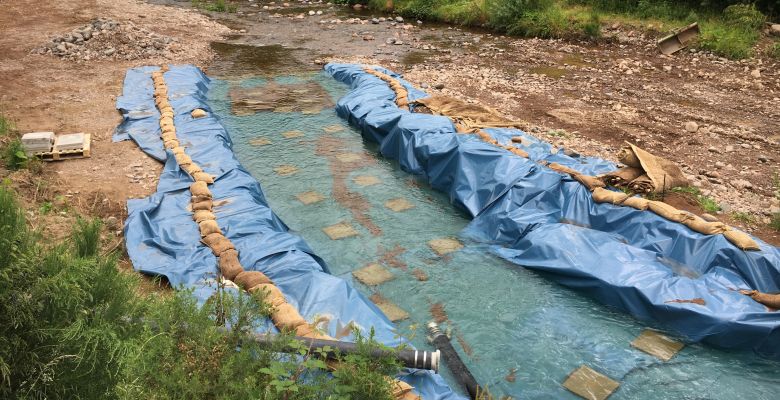
What is the Water Framework Directive?
In October 2000 the ‘Directive 2000/60/EC’ of the European Parliament and of the Council of 23 October 2000 established a framework for community action in the field of water policy’ (Water Framework Directive or WFD) which was adopted and came into force in December 2000.
The purpose of the Directive is to establish a framework for the protection of inland surface waters (rivers and lakes), transitional waters (estuaries), coastal waters and groundwater. It ensures that all aquatic ecosystems and, with regard to their water needs, terrestrial ecosystems and wetlands meet ‘good status’ by 2015.
The Directive requires Member States to establish river basin districts and for each of these a river basin management plan. The Directive envisages a cyclical process where River Basin Management Plans are prepared, implemented and reviewed every six years. There are four distinct elements to the river basin planning cycle:
- Characterisation and assessment of impacts on river basin districts;
- Environmental monitoring;
- The setting of environmental objectives; and
- The design and implementation of a programme of measures needed to achieve them.
The Water Framework Directive is implemented in Ireland through The European Union (Water Policy) Regulations 2014 which have established a new governance structure to implement the WFD across the entire country, with clear responsibilities assigned to the Minister for Housing, Planning, Community and Local Government, the EPA and Local Authorities. These regulations place new obligations on local authorities to coordinate catchment management and the public participation element of the WFD.
When do I need to get in touch?
In accordance with the Water Framework Directive, proposals that have the potential to impact ‘waterbodies’ are required to demonstrate that actions would not result in a deterioration in ‘ecological status’ and would not result in the relevant waterbodies being unable to achieve the relevant target ecological status.
Projects which directly affect the aquatic environment such as bridges, culverts, flood prevention schemes or abstraction permissions will require consideration of the potential effect of the proposal. If your project requires works in or around water, we advise that consideration of compliance with the Water Framework Directive should be factored in as early as possible as it may have significant influence on the design and construction programme.
How can EcoÉireann help me?
We work closely with engineers, hydrologists, marine planners and geomorphologists, in addition to statutory agencies (Environment Protection Agency), to consider potential effects on water bodies and identify mitigation requirements.


